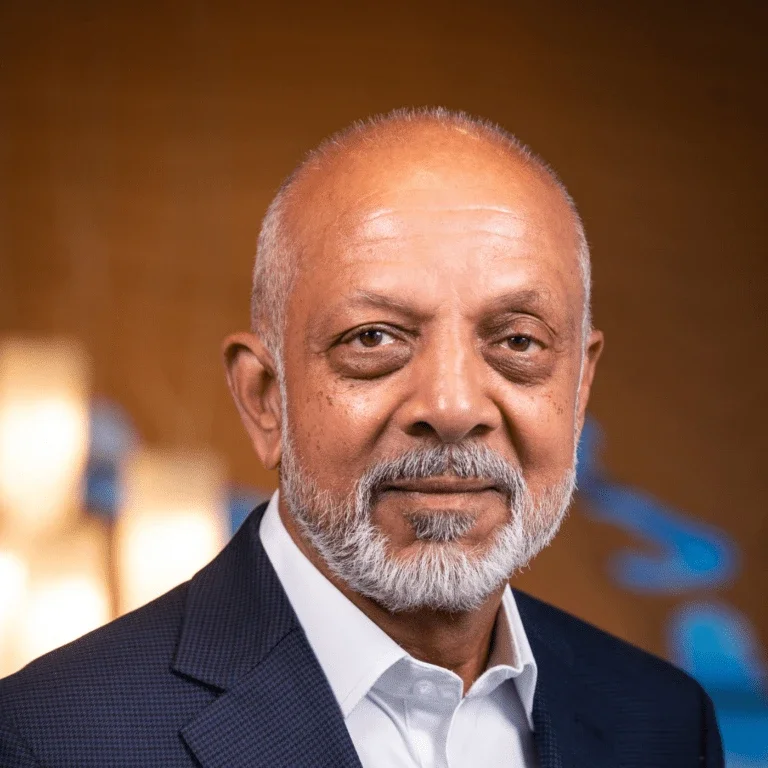As prepared for delivery on Tuesday, October 15, 2024, in Berlin, Germany
Good morning, everyone.
My name is Naveen Rao, and I am the Senior Vice President of Health at The Rockefeller Foundation.
Today, we are gathered for a conversation that has never been more urgent: Redefining Global Health in the Era of Climate Shocks. That’s not just a name — it’s a rallying cry for everyone in this room.
Let me be clear — there is nothing “shocking” about how climate change is impacting our health anymore.
Extreme weather has become disturbingly routine. Outbreaks of vector-borne diseases are becoming more frequent as mosquito breeding grounds spread. Flooding pollutes water, disrupts agriculture, and destroys infrastructure.
Yet these impacts continue to burden families, upend communities, and overwhelm health systems.
- Vulnerable communities — those who did the least to cause the climate crisis — are being pushed past the breaking point.
Consider this past year:
- Summer in the northern hemisphere was the hottest on record — again. For our children, it may be remembered as one of the coldest as each year grows warmer. Extreme heat threatens the lives of billions of vulnerable people around the world.
- Severe flooding across West and Central Africa has destroyed hundreds of thousands of homes and affected an estimated 4 million people so far this year.
- Hurricanes in the southern U.S. this month devastated inland and coastal cities alike, shattering the myth of so-called climate havens. The storms tore through a plant that manufactures more than half of the IV solution for U.S. hospitals, forcing hospitals nationwide to ration supplies.
Examples are all around us. There is no place safe from climate change. No one is immune to its impacts.
This reality — that none of us are safe — can feel overwhelming. I know many people are scared. I know a sense of doom and hopelessness surrounds us.
I am a physician by training, and I understand what happens when people lose hope.
- Hopelessness doesn’t just weigh on our minds; it burdens our bodies. It weakens the immune system. It sows isolation. It convinces us that we are powerless.
And yet— we are not powerless. The climate crisis is an existential one, but I also see it as a tremendous opportunity for transformation.
Public health has always represented a powerful idea: our individual wellbeing is inextricably linked with the wellbeing of everyone around us. Today, we know our wellbeing is also inextricably linked with the health of the planet we live on.
We must make global public health fit-for-purpose for climate change. That is the focus of The Rockefeller Foundation’s $100 million commitment to climate and health, alongside the big bets we are making to improve lives through agriculture and renewable energy systems.
Redefining global public health for climate shocks will require all of us to work in new ways, including ways that our field has found challenging in the past.
- We see collaboration at the heart of this effort: meteorological agencies and health systems working hand in hand, donors aligning resources, and sectors innovating together to protect their communities.
- We also need precise intelligence supported by global networks so leaders can predict and prepare for climate-related health emergencies, and position resources where they are needed most.
- Finally, we know that building trust through effective communication is vital to warn people of their risk and help them take life-saving action.
We believe we are on the brink of another transformation in the field of global health, one that will redefine what it means to live, to thrive, and to build a future where health and climate justice are inseparable.
Universal health coverage. Vibrant cities that adapt to our changing climate. Global financing that supports the most vulnerable. Clean energy. These are not distant dreams. They are achievable, and they are imperative.
At today’s session, you will hear from leaders who are at the forefront of the climate and health transformation: those developing new infrastructure, deploying innovative solutions like parametric insurance, and piloting new approaches to tracking infectious disease outbreaks. In our second panel, we will hear from funders who have committed to financing joint climate and health action about opportunities to align, enhance, and increase funding.
But before we start, I ask you to take a moment to reflect on your life. The things you cherish. The traditions you hold dear. The future you want for your children and grandchildren. Whether it’s the beaches you escape to or the snowy winters you look forward to — we have to work together to protect it.
Last year, on this stage, I read a letter to my grandchildren about the future I wish for them. A future where summer days are not deadly, a future where our favorite foods are abundant, a future where all people are protected, and where meaningful action has been taken to limit the warming of our planet.
Find your personal reason. Hold on to it — and let the vision of the future you are fighting for fuel your work.
Within your sphere of influence — whether through your personal choices, your research, your funding, your advocacy, your leadership — you can take part in this transformation.
So, let’s begin.
I am pleased to welcome the moderator of our first panel to the stage, Henna Hundal, Stanford Medical Student and climate and health advocate.
Dr. Naveen Rao
